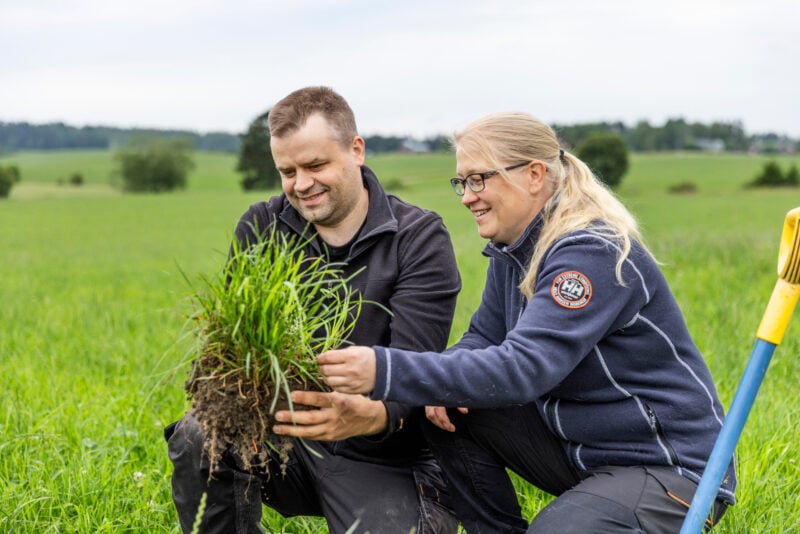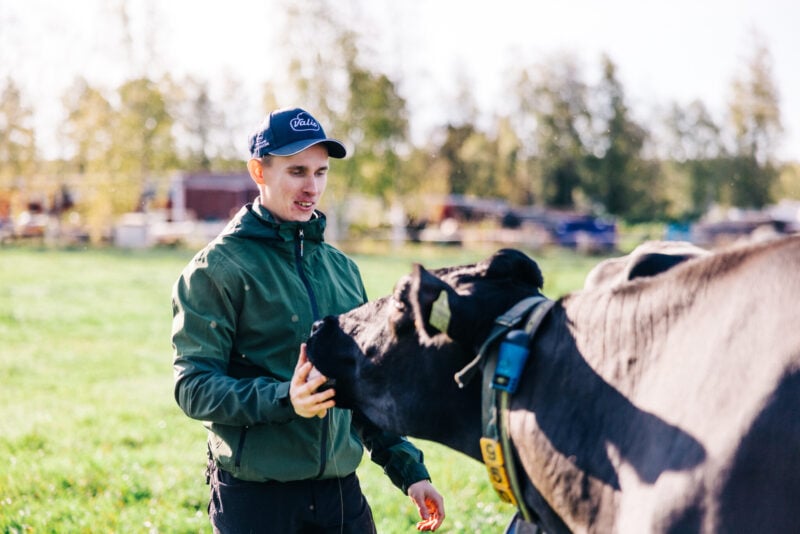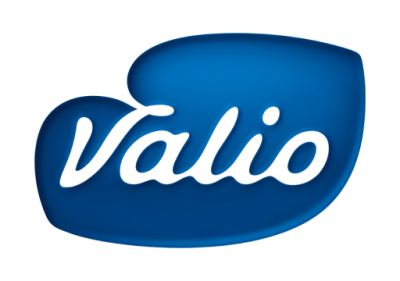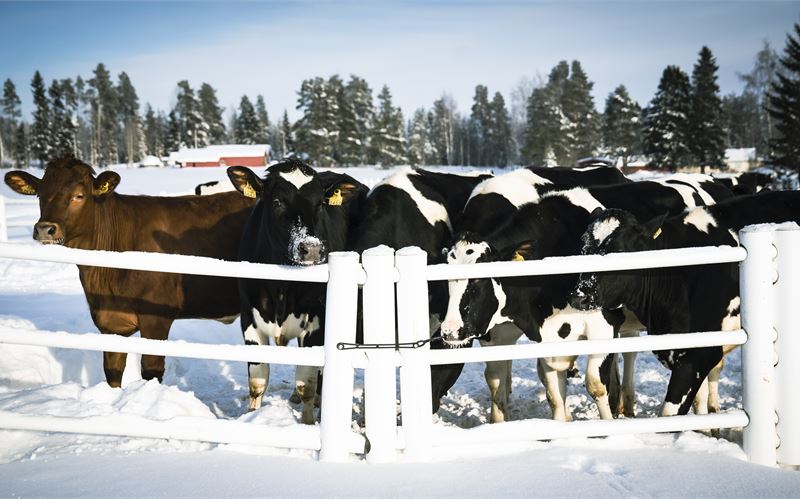Sustainable dairy farming
Climate change, loss of biodiversity and population growth are major challenges for food production. In the future, more food will be produced on less hectares of arable land than today. At the same time, the environmental and climate impacts of food production must be significantly decreased. We want to be part of the solution to the challenges: We are aware of our environmental and climate impacts, and we are actively reducing them.
What does a carbon-neutral milk future mean?
All food production generates emissions. Emissions come from crops, animals, transportation, factories, packaging, etc. In the future, these emissions must be decreased significantly.
Carbon-neutral milk by 2035 means that at least the same amount of emissions is reduced and removed from the atmosphere as is generated on dairy farms, in transportation, at factories, in the manufacturing of packaging, and elsewhere along milk’s journey. In calculating the carbon footprint, greenhouse gases (e.g. methane, nitrous oxide and carbon dioxide) are converted into a common format, i.e. carbon dioxide equivalent.
Read more what is happening on farm level at Valio’s dairy farms.

Towards carbon-neutral milk
Valio’s ambitious climate programme consists of concrete actions to cut milk’s carbon footprint to zero by 2035. We have listed the actions, timelines and targets by which the same amount of greenhouse gases generated in milk production are sequestered by 2035.

Binding carbon to the soil! We are training all our dairy farmers in carbon farming
Smart farming can help fields to absorb more carbon. We have organized carbon farmer courses since 2019. Already 1500 milk producers have participated in the training.

We reduce peat field emissions
One of our greatest challenges is related to the larger volume of emissions in fields that are on dried peatlands. In December 2019, we held a hackathon to find new ideas for reducing emissions. Farmers, start-up companies, agriculture students and researchers were invited to take part. In summer 2020, new pilot projects started at the farms.

Biogas-fuelled milk truck rolls out
Since February 2019, Valio Luomu™ milk is transported from the farm to the dairy under the power of liquid biogas, or LBG. This biogas truck reduces the carbon footprint of milk collection and is the perfect example of the circular economy: Biogas is, after all, made from Valio plant waste. There are already five biogas milk trucks en route.

Poo-power!
Roughly one third of the energy in the grass cows eat is made into manure. It’s possible to use the manure to make biogas to replace fossil fuels. Manure also contains valuable nutrients that plants need: nitrogen and phosphorus. We have developed technology to recycle the dairy farms’ nutrients to, for instance, organic grain farms. We are currently planning to implement practical manure recycling.

Cows help to increase biodiversity
Food production is impossible without a high level of biodiversity. Having an abundance of species is good, as different plants tolerate cold, dry, and heat in different ways. Biodiversity is given much consideration in the guidelines for good Valio milk production. Valio’s dairy farms in Finland do not use soy in feed. We aim to increase the biodiversity-friendly activities at farms and to reduce negative impacts.

Zeroing the carbon footprint doesn’t happen overnight
There are two paths to cutting food’s carbon footprint, a fast one and a slow one. “We have chosen the longer path, as we believe that only by challenging ourselves and the entire milk chain can we make permanent, sustainable change and reach carbon neutrality for milk by 2035,” says Juha Nousiainen.

Top climate and grass research teams together
This goal is only achievable through cooperation. Our climate related partnership network is specifically focusing on studying carbon sequestration for grass. Participants include the Finnish Meteorological Institute, the Natural Resources Institute Luke, the University of Helsinki, Yara, and Atria Tuottajat. We have also engaged various smaller companies and research groups.

Riihimäki dairy and snack plant shine in environmental matters
Yoghurt manufacturing at Riihimäki’s Herajoki began in 1968. The 50-year-old plant got a new companion in 2017 in the form of a new snack plant. The energy-efficient plant also manages its waste well: “For many years now, we have not sent any waste to the landfill. Production side flows that we can’t use end up, for example, as raw material for biofuel,” says shift supervisor Minna Ranta.

The ABCs of carbon footprint calculation
Cows convert the energy in grass into milk. This is called rumination, and its price is methane, generated in the animal’s rumen. The second largest part of milk’s carbon footprint is in feed production. “Carbon footprint calculations are required to verify and guide emission reductions. What’s more important than individual figures are the acts that can reduce climate impacts.” Researcher Aleksi Astaptsev’s job is to calculate milk’s carbon footprint.

Tuuli Hakala’s job is to reduce milk’s carbon footprint
Tuuli Hakala has spent her whole life advocating for the wellbeing of animals, nature and people, and would prefer to figure out new things than to be always right.

What is milk needed for?
“It’s great that so many people are thinking about their diet’s climate impact. Nutrition is something you should always consider when looking at the climate impacts. That makes it easier to compare different products to each other,” says nutrition specialist and researcher Tuula Tuure.

Wood pellets for kettles and more wind power for plants
“Our plants manufacture thousands of tonnes of different products every day. Most of the power is needed for cooling and cold storage. Milk pasteurising requires first heat, and then cold immediately after. The share of renewable fuels is already close to 60 percent,” says Energy Manager Peter Fabritius.

Continuously better packaging
We develop continuously our packaging to be better in line with circular economy and to have as minimal climate impact as possible. At its best, climate-smart packaging is circular economy-ready and made from renewable or recycled materials.

Valio has launched a five-year Carbon-Neutral Dairy Farm pilot to test carbon-neutral dairy production actions in practice. Four Valio dairy farms in different parts of Finland are participating in the pilot. The pilot aims to find out how the concrete climate actions to be taken on the farms affect emissions from milk production, how they work in everyday farm life, and what their cost-benefits and impacts are. The Luoma farm is one of the four pilot farms. Read more about the methods explored in the Luoma farm to reduce emissions.



